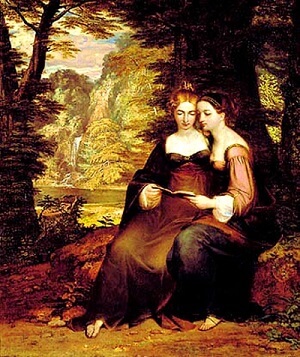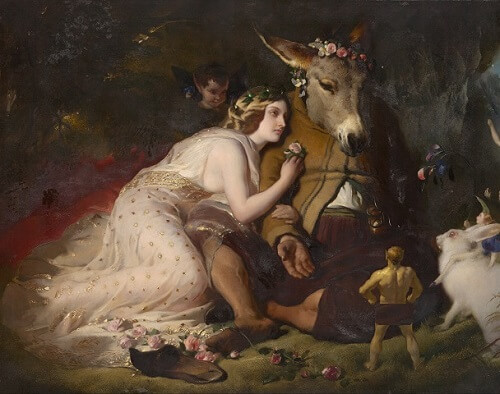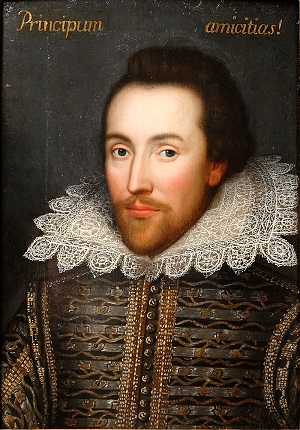Activity 1: Recite the Story Information
- Before and after reading or listening to the story, recite aloud the title and author of the play.
Activity 2: Narrate the Story
- After reading or listening to the story, narrate the events aloud in your own words.
Activity 3: See the Playwright and Poet William Shakespeare
- Study the controversial 'Cobbe portrait' below, which may be a real-life portrait of Shakespeare.
- The portrait contains the Latin phrase 'Principum amicitias!' which means 'The alliances of princes!'
Activity 4: Map the Play
- The comedic play, 'A Midsummer Night's Dream,' takes place in and around the city of Athens, Greece.
- Find Greece on the map of Europe.
- Point to the location of Greece on the map of the world.
- Find Athens on the map of Greece.
Activity 5: Can You Find It?
During the week, zoom in to study the painting, 'Titania and Bottom. A Midsummer Night's Dream,' by Edwin Landseer. Find the following:
- Titania
- The Clown Bottom
- Puck (Behind Titania)
- Standing Male Fairy
- Female Fairy Riding a Rabbit
- Turkish Slipper
- Queen of the Fairies
- Enchanted Fairy
- Enchanted Mortal
- Queen of the Fairies
- Flower Garland
Activity 6: Rehearse the Play Scenes

- Use your theater, props, and characters to rehearse the two abbreviated scenes on pages 28-29 of 'Third Grade Shakespeare Theater Pages.'
Activity 7: Hold Opening Night
- Enact a live performance for family members and/or friends.
- Instructors may need to prompt children to say their lines.
- Important Note – Keep your actors, actresses, and set props safe for future productions.
 Beautiful Stories from Shakespeare I
Stories from Shakespeare I
Beautiful Stories from Shakespeare I
Stories from Shakespeare I



 Beautiful Stories from Shakespeare I
Stories from Shakespeare I
Beautiful Stories from Shakespeare I
Stories from Shakespeare I






